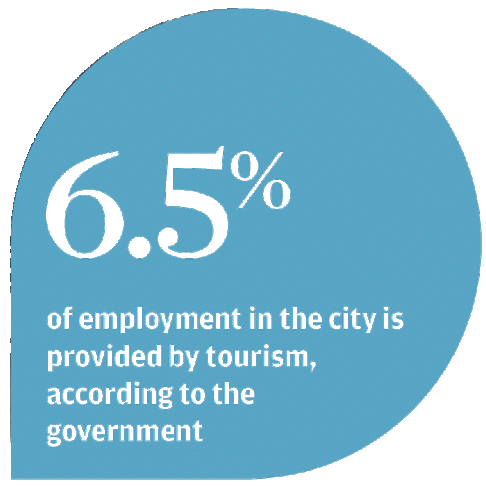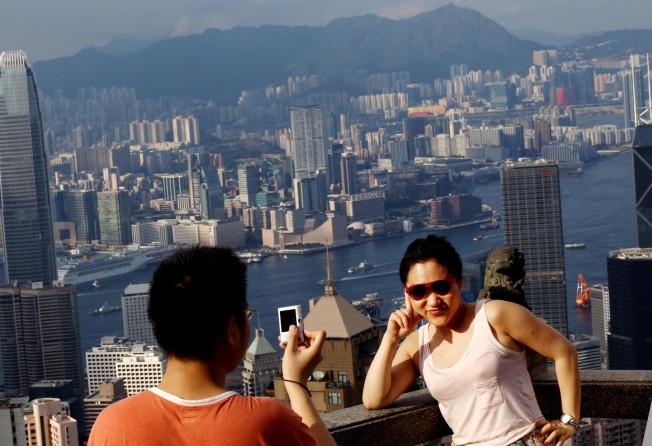
Tourist facilities near limit, Secretary for Development Paul Chan says
One day after a report forecast doubling of visitor numbers by 2023, development minister wonders how this surge fits in with land crunch

Secretary for Development Paul Chan Mo-po warned yesterday that the city's tourist facilities were almost saturated - a day after a government report forecast that visitor numbers would double to 100 million by 2023.

And he said that when it came to allocation of land, housing took priority over tourism.
On Friday, a government report predicted that Hong Kong could expect 70 million tourists by 2017 - up from 54.3 million last year - and 100 million within a decade.
Secretary for Commerce and Economic Development Greg So Kam-leung said the city could cope with an increase, bringing an angry response from critics.
Chan called for a thorough review of the development of the tourism industry. "Where should it stand among other industries? The growth of every industry needs land."
He also noted that although Hong Kong was a shopping destination for tourists, retail space had only increased by single-digit percentages since the introduction of the individual visit scheme in 2003.
Increases in the supply of hotel rooms also lagged behind the rise in the number of tourists. The number of overnight visitors rose 18 per cent to 23.8 million from 2010 to 2012, while room numbers increased 11.5 per cent to 67,394 in the same period, according to government assessments.
To meet the projected increase in demand, Chan said the government would earmark more land for hotels, including sites in the planned new towns of Hung Shui Kiu and Tung Chung.
In addition, a pilot arbitration scheme is expected to be launched this year to help the government and developers reach agreement on land premiums - charges for change of land use.
Chan said he hoped the future East Lantau Metropolis, an artificial island planned to the east of Lantau, would attract mainland visitors travelling via the Hong Kong-Zhuhai-Macau bridge, due to be completed in 2016.
Travel Industry Council chairman Michael Wu Siu-ieng suggested the government lower the land premium for the development of a mega mall in Lok Ma Chau. Tourists would then be discouraged from converging on the city centre when they stay near the border, he added.
Retail Management Association chairwoman Caroline Mak Sui-king said the value of retail sales had more than doubled in the past decade, but the increase in sales volume lagged because of lack of space and manpower.
The government should address the need to import more labour and earmark more land for retail, she added.